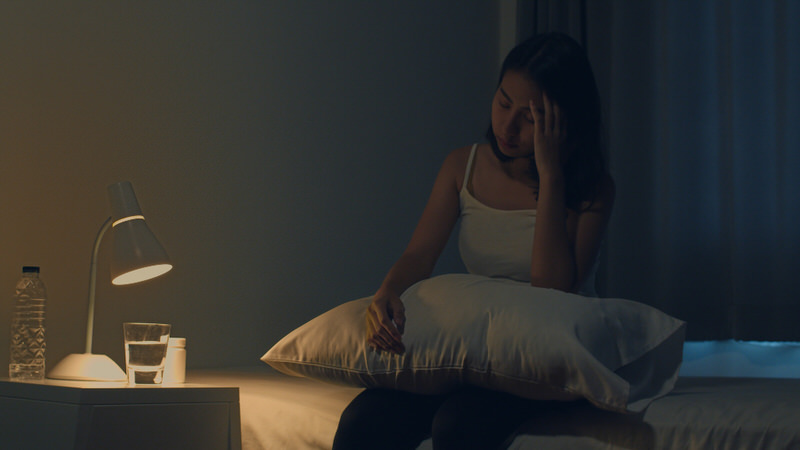If you’re dreaming too much and frequently, then it could be that you’re suffering from epic dreams. This consists of dreaming all night about continuous physical activities that are repetitive. Many reasons, such as people with brain lesions, withdrawal symptoms, stress or anxiety, substance abuse, or being pregnant, could be giving you these dreams. One of the common side effects is waking up tired but with the help of your doctor and making lifestyle changes can help you get a dreamless and sound sleep.
Dreams are part and parcel of sleeping. Sometimes these dreams are relaxing and soothing, which is why you might not even remember dreaming once you wake up. You usually wake up feeling refreshed too. But other times, you might get such excessive or vivid dreams that you still remember them after waking up.
As part of our sleep cycle, dreams are a common occurrence. For every adult, 7 to 9 hours of sleep can make them feel refreshed the whole day.
But why is it that even after sleeping for 7-8 hours, you still wake up feeling tired? And you remember dreaming a lot too. Is there a connection between excessive dreaming and waking up feeling tired? Is it possible to get a sound sleep?
Excessive dreaming
It’s called epic dreaming when you dream in excess all through the night and wake up feeling tired. People who go through excessive dreaming wake up complaining of dreaming all night about continuous physical activity, making no sense whatsoever. Such as constant housework or endless walking.
These people also complain, saying they felt sensations of acceleration and spinning while dreaming.
People suffering from epic dreams, however, lack vivid emotions in their dreams altogether. And this endless and pointless dreaming constantly leaves them feeling tired when they wake up.
Epic dreaming is more common in women (85%) than in men (15%).
5 reasons for excessive dreaming

1. Brain lesions
One reason why excessive dreaming occurs frequently is with people with brain lesions. It includes increases in both the frequency and the vividness of dream imagery.
In fact, patients with brain damage also reported more continuous and banal dreaming. Having the same repetitive dreaming throughout the night.
2. Withdrawal symptom
If you have recently stopped taking certain medications, then you might be having excessive dreams every night as a withdrawal symptom.
Excessive, vivid, and early-onset dreaming follows withdrawal from tricyclic antidepressants or short half-life serotonin reuptake inhibitors such as paroxetine or fluvoxamine.
3. Stress or anxiety
Feeling stressed or anxious in your day-to-day routine can greatly affect getting a good night’s sleep.
Sometimes, the stress or anxiety can be apparent to you, and you might deal with it. But most of the time, this stress or anxiety is the underlying problem and cause of dreaming excessively and waking up tired.
They can trigger constant dreams, which leave you craving a sound sleep every night. This stress and anxiety can be caused by anything.
So, try to find the root cause and dealing with it is the only way to make sure you get a dreamless sleep.
4. Substance abuse
If you’re recovering from any excessive use of any substance such as alcohol, drugs, cigarettes, then getting those excessive dreams is a common thing to experience.
They can trigger excessive or vivid dreams, and, in the beginning, you might feel like this for a long time.
Often, you’ll even dream of taking all these substances on repeat, like smoking one after another.
5. Pregnancy
Pregnant women also report dreaming in excess or getting those vivid dreams early in their pregnancy.
All of this is, of course, also affected by changing hormones and sleep patterns. But as you proceed in your pregnancy, these dreams will slow down.
Waking up tired & other side effects

Having these excessive dreams on loop and every night is bound to take a toll on your health. While daytime sleepiness is an obvious outcome since you cannot get sound sleep, it involves facing other effects.
Day sleepiness
The obvious effect is you nodding off in your office or other places of work, especially in the afternoons.
Not just getting sleepy, but you experience exhaustion, constant yawning, and heaviness in your body. Your concentration goes to the bin, and everyday tasks seem impossible to do.
Getting moody
Getting irritated and moody because of irregular sleep is bound to happen. Not only do you feel grumpy, but you get irritated by everyone around you or end up getting angry at them.
It can be mentally exhausting to get excessive or vivid dreams every night.
Fearing sleep
What happens as a consequence is that you start avoiding sleeping. Whether you do it consciously or subconsciously, you end up resisting sleep for fear of getting these nonsensical dreams night after night.
Taking the wrong step
For some, it goes to the extent that they cannot tolerate this constant dreaming and end up going into depression or think of taking a wrong step, including getting suicidal thoughts.
This is a strong indication that you need help right away. If you know someone facing these issues, then accompany them to a doctor and check on them from time to time.
How to get a dreamless sleep?
While I have listed several reasons why you must be dreaming excessively or having these vivid dreams, it still becomes difficult to pinpoint the cause for different people.
If you’re experiencing them sometimes and aren’t that frequent, trying to remain calm in your day and adopting various exercises can immensely help you.
Coping with your stress and anxiety is essential to get a sound sleep. So, taking yoga and doing meditations can help you out. But if your dreams are causing you emotional stress and their frequency is too often, you should consult a doctor.
They’ll suggest a treatment that will also include altering your lifestyle according to your schedule to get better sleep.
Over time with the help of your doctor, you’ll be able to overcome your excessive dreams and get the sleep you deserve. Then, you’ll no longer wake up feeling tired but energized instead.
Frequently Asked Questions (FAQs)
Why am I so tired when I wake up every morning?
When you wake up, your brain doesn’t instantly wake up but takes time to gradually start working. The initial sleepiness you feel is called sleep inertia, which is part of normal waking up.
If you still feel tired after few hours of waking up, you need to have a better sleep schedule or other underlying problems to be figured out.
Why am I sleeping 12 hours a day and still tired?
If you’re doing this frequently, you might be suffering from hypersomnia when you sleep for 12 hours but still wake up feeling tired.
You still feel the need to sleep during the day, but it still doesn’t help you. Your mind may remain foggy or tired too.
Is oversleeping a symptom of depression?
Oversleeping is a possible symptom, and that too for some people, not for everyone in depression.
If you’ve been oversleeping for some days, that, too, doesn’t mean you’ll get into depression. The right way to find out if you’re in depression is to see your doctor and get yourself treated.
Does dreaming mean good sleep?
Dreaming happens to all, sometimes we remember it, and sometimes we don’t. So while some people might get dreamless sleep, dreaming is a good outlet for one’s subconscious thoughts now and then.
Why am I dreaming more than usual?
It could be because of multiple reasons, but primary reasons could be that you’re suffering from sleep deprivation or your schedule is messed up. Then you end up dreaming more vivid or emotional dreams than usual.
To summarize
Nobody wants to yawn throughout the day and have restless nights full of dreams. It’s okay to get such nights full of dreams every once in a while. If this is happening, you need to take better care of yourself and solve your issues. Stress or anxiety throughout the day usually creeps in through the medium of dreams.
But if you see a pattern forming, where you get repetitive dreams every night, that could be a reason to worry. One such condition is epic dreams. Having repetitive and banal dreams is a common thing to experience every night.
The only way to get a good night’s sleep without any dreams is to get your schedule fixed and get a doctor’s help if you think it affects you mentally to a great extent. Then, follow up on the treatment, and with a positive mindset, you’ll live your life without such constant dreams.


